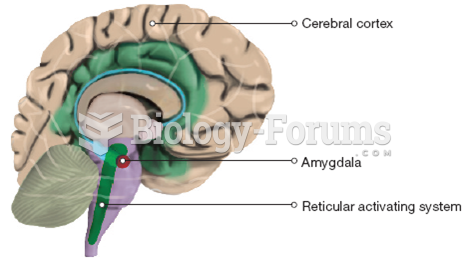This topic contains a solution. Click here to go to the answer
|
|
|
Did you know?
Illicit drug use costs the United States approximately $181 billion every year.
Did you know?
Of the estimated 2 million heroin users in the United States, 600,000–800,000 are considered hardcore addicts. Heroin addiction is considered to be one of the hardest addictions to recover from.
Did you know?
The lipid bilayer is made of phospholipids. They are arranged in a double layer because one of their ends is attracted to water while the other is repelled by water.
Did you know?
Today, nearly 8 out of 10 pregnant women living with HIV (about 1.1 million), receive antiretrovirals.
Did you know?
Atropine, along with scopolamine and hyoscyamine, is found in the Datura stramonium plant, which gives hallucinogenic effects and is also known as locoweed.
 Major features of Homo erectus include increased brain size, an angular vault, and cranial superstru
Major features of Homo erectus include increased brain size, an angular vault, and cranial superstru
 The NIOSH Pocket Guide entry for gasoline. Useful information includes health effects and chemical ...
The NIOSH Pocket Guide entry for gasoline. Useful information includes health effects and chemical ...





